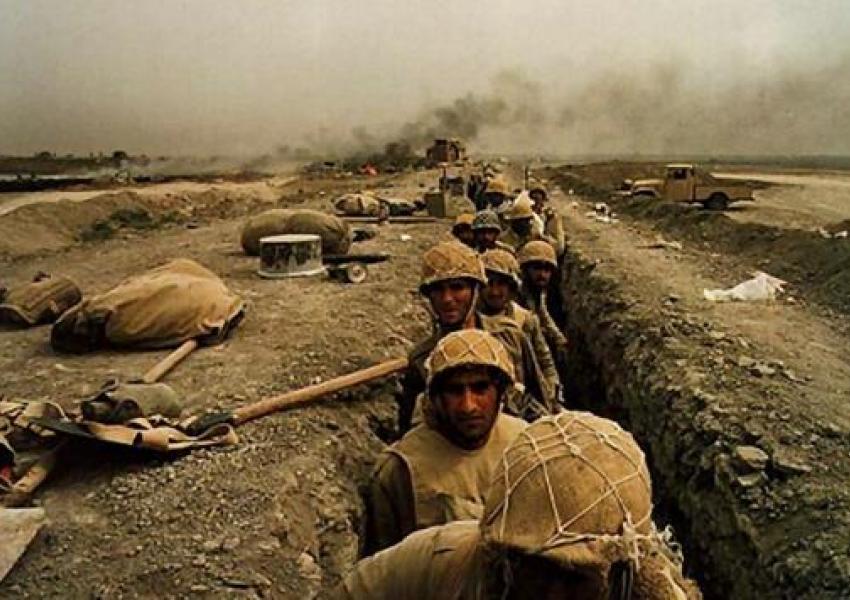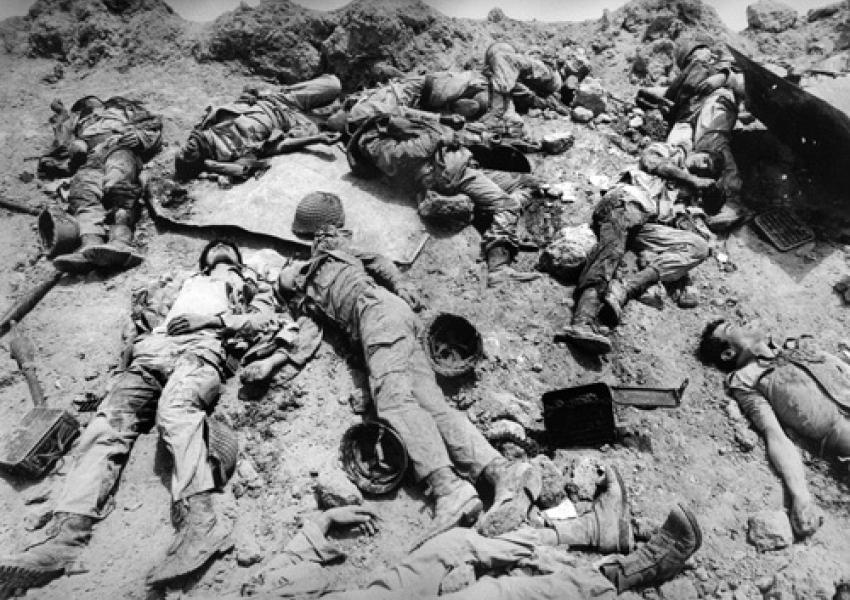
Foreign-Based Media Demystify Official Propaganda, Disinformation About Iran-Iraq War
The 40th anniversary of Iran's war with Saddam Hussain's Iraq brought about a battle of conflicting narratives about the eight-year long conflict that claimed hundreds of thousands of lives on both sides of the Iran-Iraq borders.
The Iranian government continued trumpeting its populist narrative even in Supreme Leader Ali Khamenei's anniversary speech on Monday, and portrayed Rouhollah Khomeini the founder of the Islamic Republic as a wise man who led during the war and prudently ended it after eight years.
However, for the first time in 40 years, foreign-based satellite television channels broadcast documentary footage that demystified the state-sponsored information and disinformation about the war.
They revealed among other things that unlike the official Iranian narrative, Khomeini and his revolutionary allies made provocative moves toward Saddam's regime including encouraging the Iraqi army to stage a coup against Saddam Hussain, although clearly Iraq started the war by a pre-meditated military plan.
Meanwhile, showing dramatic scenes of death and destruction, they exposed part of the Islamic Republic's disinformation about how the war started, continued for a long time, and ended only after Khomeini realized that he no longer had the financial and human resources to beat on the drums of war he naively thought would end "all the seditions in the world."
In a series of documentaries aired by Iran International, BBC Persian and Manoto TV during the past weeks, Iranian viewers more than 70 percent of whom watch satellite TV according to Iranian officials and trust them more than the Iranian state television, saw how incompetent commanders ushered thousands of young children to cross mine fields, and left the fallen and even the wounded soldiers in Iraqi marshland as they withdrew from the Islands of Fao and Majnoun under heavy Iraqi fire.
Some of those former commanders are stakeholders and major players in the Iranian government and control the country's wealth. Many chair tens of financial companies that operate under Khamenei's office and are active in various economic sectors from import-export and oil industry, to mining and film production.

Iran International continues broadcasting a series of revealing documentaries with lots of hitherto unseen footage on the history of the Iran-Iraq war. BBC Persian aired a shocking documentary Sunday night that exposed the Iranian disinformation about the start and end of the war, and Manoto TV in its latest documentary on Monday reviewed yet another version of history that revolved around the fate of Arvand river, how Iran under monarchy guarded it and how Iran nearly lost it under the Islamic Republic.
The narrative on social media, one of the few places where Iranians can voice their views and frustrations reveal the high popularity of these well-received documentaries.
Perhaps documentaries like these have led Khamenei to believe that "foreigners are distorting the history of the war" as he said in his much publicized speech on Monday. But now that Iran has effectively lost domestic monopoly on news dissemination, it is really hard for Khamenei to convince young Iranians that his hygienic version of the history of the war is true.
The official narrative has for long tried to portray Iranian forces as invincible, strong and almost immortal. All of these myths are now up in the air thanks to the Persian speaking media beaming beaming programs into Iran alongside news, current affairs and entertainment to counter disinformation.
On Tuesday, the Political Office or rather "Politbureau" of Iran's Revolutionary Guards (IRGC) announced the launch of a service to provide information to the public about the history of the war. However, even researchers who are being treated as insiders doubt IRGC's own news agency whether this can be true. Nonetheless, according to Tasnim news agency, some 40 years after the war, some documents will still remain confidential.



